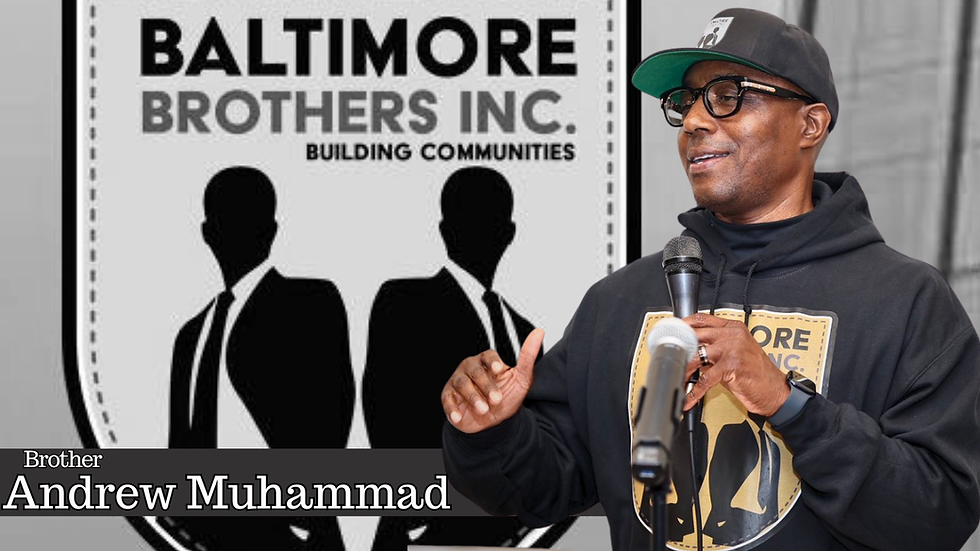Should We Support Black Businesses Just Because They're Black?
- Brother Levon X

- Apr 19
- 3 min read

Should We Support Black Businesses Just Because They're Black? This is still a question being asked in 2025. Some people say yes—it’s the right thing to do, especially if you live in a Black community. But to understand this fully, we need to step back and ask: how did we get here?
If we study history, especially the era of segregation, we see that Black dollars used to circulate nearly 100% within our own communities. We patronized our businesses, we created jobs for one another, and we built strong local economies. But things began to shift after integration. That’s when many of us started spending outside of our communities, believing—often falsely—that other businesses were somehow better than our own.
So when we ask today whether we should support Black-owned businesses “just because” they’re Black-owned, we’re really talking about rebuilding a cycle of wealth and self-sufficiency. Because when we spend money within our own community, we strengthen our economy and create stability.
Other groups do this all the time. Koreans, Indians, Russians, and Italians all support businesses within their cultural communities. They may not advertise based on ethnicity, but there is cultural loyalty—they spend among their own before they look elsewhere. Most of these communities don’t put heavy stipulations or scrutiny on their businesses the way we tend to do.
Unfortunately, the Black community is known for spending trillions of dollars outside of our own neighborhoods. That’s a major concern. Yet we praise the entrepreneurs and small business owners who’ve managed to thrive—those who hire their own people and bring value back into our neighborhoods.
Still, we must face some hard truths. The Black community doesn’t yet manufacture on a large scale, and we’re still recovering from systems of exclusion that didn’t truly end until the Civil Rights Act of 1964. Many Black-owned businesses rely on external sources to get their products, often at higher costs, making it harder to compete with major retailers who have access to cheaper inventory.
Another issue worth addressing is how we treat our own. Why are we more critical of Black businesses than others? How many of us have had bad service at a national fast food chain and still go back? Some of these places serve us through glass windows, treating us like animals in a zoo—but we return without question. Yet, if a Black-owned store makes one mistake, we threaten to boycott them entirely.
That’s not fair.
What we should be doing is speaking directly with business owners when there are issues. They may not always be aware, and your feedback could actually help them improve. Sometimes it's not even the owner—it’s an employee with a poor attitude that reflects badly on the business. Large chains send surveys after your visit to gauge your satisfaction. Why can’t we approach our community-owned businesses with that same mindset?
We should desire to see our brothers and sisters succeed. Starting a business is no easy task, especially in a society that’s not always friendly to Black entrepreneurship. One way to market our businesses is by simply speaking positively about them. Word of mouth is powerful, and uplifting our businesses publicly can attract more customers from within and outside our community.
Let’s not use public platforms to bash our own. There are plenty of Black-owned businesses that are professional, courteous, and provide excellent service. Why not highlight those experiences too?
When we constantly talk down about ourselves, other communities listen. They internalize those negative stereotypes, then use them as reasons not to do business with us. This is a wake-up call: until we respect our own services, we won’t earn respect from the outside. And that respect starts with how we treat each other.
Black-owned businesses also have a responsibility. If you’re receiving Black dollars, you must return that support with gratitude and professionalism. That includes who you hire, how you market, and the service you give.
Support should be natural—like breathing. We should be slower to anger, and more committed to building up rather than tearing down. Other communities don’t spend their dollars with us the way we spend ours with them—and that’s a fact. And often, those other establishments don’t even give us a smile or a thank-you. So let’s stop pretending that better service is always found outside our community.
We can improve if we work together.
We are not like everyone else. Our journey in this country has been different, and so our strategy must be too. But fairness still matters. If you're running a Black-owned business, treat every customer with care, especially your own people. Let appreciation and professionalism be at the heart of what you do.
That’s how we grow. That’s how we win. Together.





Comments